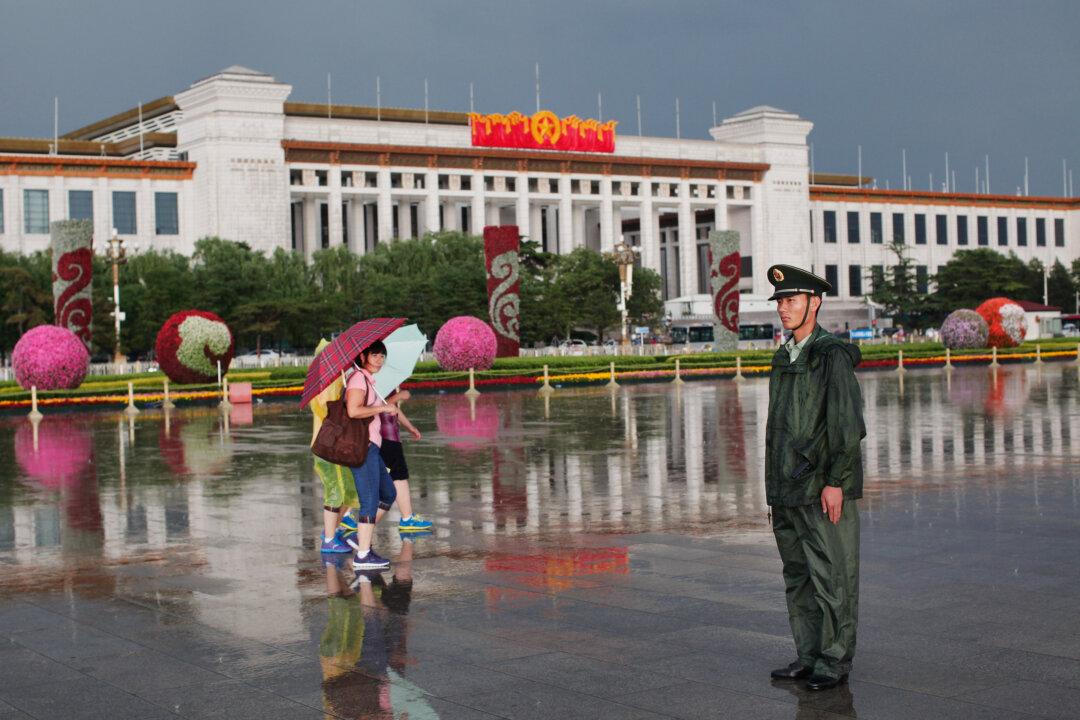BEIJING—Last year marked a “significant deterioration” in reporting conditions for foreign journalists in China, the Foreign Correspondents’ Club of China said on Jan. 29, with no reporter saying in a new survey that conditions had improved last year.
The group said 55 percent of respondents to its 2018 reporting conditions survey said they believed conditions deteriorated last year, the largest proportion since 2011.
“Not a single correspondent said conditions improved,” the group said, unveiling results of a survey of its 204 foreign correspondent members, 109 of whom responded to questions.
“Rapidly expanding surveillance and widespread government interference against reporting in the country’s far northwestern region of Xinjiang drove a significant deterioration in the work environment for foreign journalists in China in 2018.”
The government has repeatedly said it is committed to ensuring foreign media can report, but that they must follow the rules and regulations.
According to rules issued just before the 2008 Beijing Olympics, foreign reporters can interview anyone as long as they have permission.
But the government often interprets the rules to suit its needs, rights groups say, especially when it comes to sensitive subjects. Tibet remains off limits for foreign journalists apart from government-organized visits.
Beijing Seeks to Influence Foreign Journalists’ Coverage of China
Beijing has recruited dozens of journalists from Southeast Asia and Africa every year since 2016 for its 10-month media fellowship program, according to India’s news site The Print. They are paying foreign journalists to spread the Chinese regime’s propaganda.The program was launched to prop up Beijing’s “One Belt, One Road” (OBOR, also known as Belt and Road) initiative announced in 2013. The program also responds to a call by Chinese leader Xi Jinping to “tell China’s story better” to the world, according to the Nov. 24 article written by Ananth Krishnan, a former China correspondent with India’s English-language news magazine India Today.
Beijing launched OBOR to enhance its geopolitical influence around the world by building up trade routes that link China to Southeast Asia, Africa, Europe, and Latin America.
China’s fellowship program trains journalists from two key OBOR regions to report positively on OBOR projects, which have been increasingly scrutinized for burdening countries with crippling debt.
However, the program has very strict rules. These journalists cannot “undertake individual reporting trips unaccompanied by government minders,” meaning they cannot report on “sensitive” issues such as human rights violations in Tibet and Xinjiang.
Beijing has carried out systematic persecution against Uyghurs in Xinjiang and Tibetans in Tibet. Human rights group estimate up to a million Uyghur Muslims have recently been rounded up and thrown into concentration camps, while the Tibetans face severe restrictions in practicing their religious faith and cultural traditions.
Participating journalists also cannot freely report on sovereignty issues in the South China Sea. They can only report on the South China Sea dispute based on daily briefings provided by Chinese foreign ministry officials—in other words, repeat Beijing’s propaganda.





